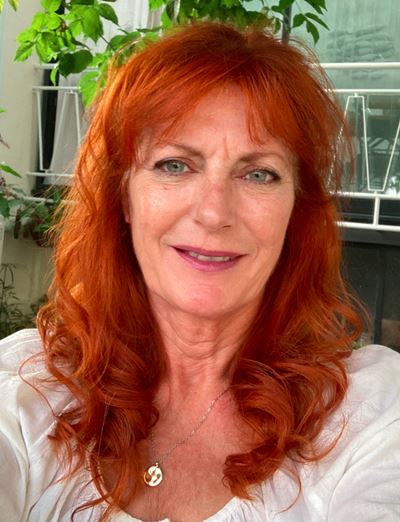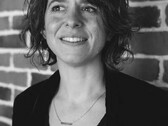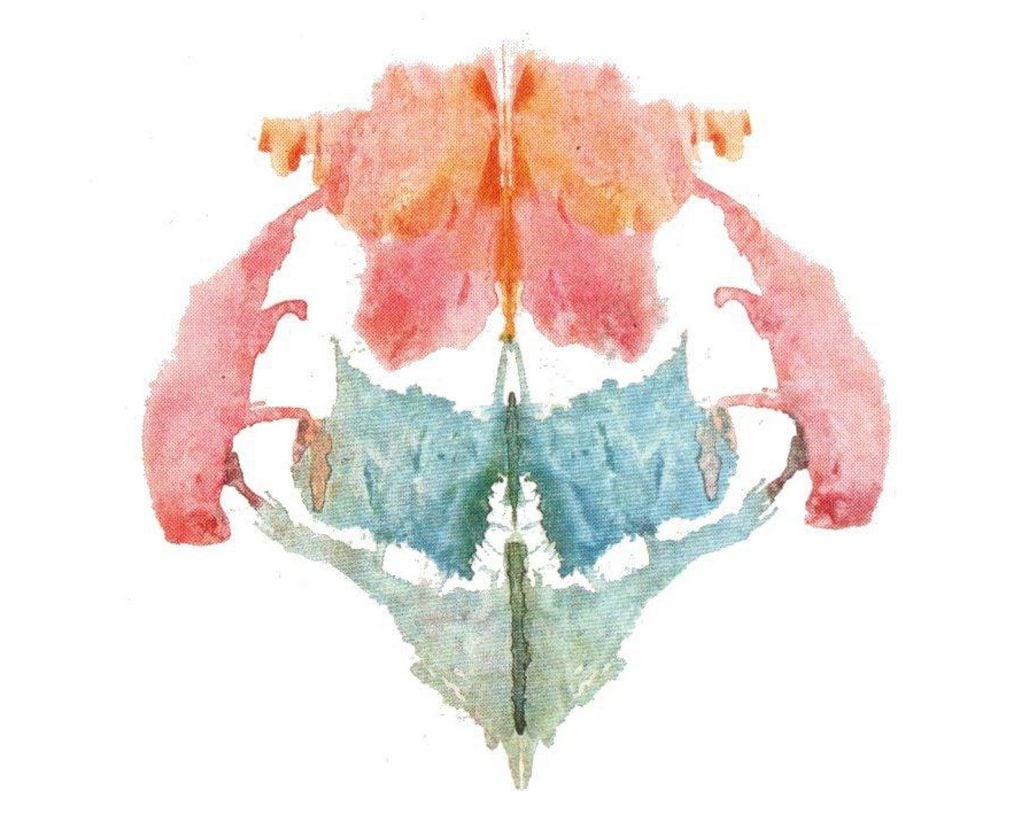Stéphanie Gross
Psychanalyste à Tours

Psychanalyse / thérapie psychanalytique
Prenez le risque de parler seul avec vos propres mots à un inconnu lié par le secret et votre parole vous mènera quelque part, elle ne sera pas vaine. Philippe JULIEN
ACCUEILLIR LE NOUVEAU EN SOI
Commencer une analyse ou une psychothérapie de type analytique est une décision importante. Ce choix nécessite à la fois de l’investissement personnel, de la volonté mais aussi un certain lâcher-prise. En effet, ce qui se parle lors des séances permet de devenir plus conscient donc plus libre. Cependant des changements profonds opèrent, des émotions inconnues, des manifestations psychiques émergent et il ne faut pas avoir peur de les accueillir. Je vous invite à “feuilleter” les pages de ce site pour situer ma démarche.
PRISES EN CHARGE THÉRAPEUTIQUES
Séances individuelles (adultes et adolescents) : cure analytique, psychothérapie de type analytique, thérapie de soutien (gestion du stress, travail sur les émotions). Séances de 40 à 45 minutes.
Thérapies de couples : les conflits conjugaux et problèmes de communication peuvent être réglés par une psychothérapie. Elle permet de mieux cerner les besoins et attentes de chacun dans le couple et leur réciprocité ou non. Le thérapeute/analyste aide à construire une dynamique de projet, à clarifier la communication conjugale en envisageant le changement dans le sens du couple et d’une plus grande autonomie individuelle et à découvrir le sens de son propre désir et l’acceptation du désir de l’autre. Séances d’1 heure 15 (80 euros).
Groupes de paroles pour parents (5 à 10 personnes) : pouvoir parler ses difficultés aux enfants-adolescents qui sont les nôtres dans la période de mutation et d’identification profonde qu’ils traversent peut permettre une mise en commun féconde en questionnements. Partager son expérience de parents, pouvoir témoigner de ses doutes en confiance dans une mise en lumière psychanalytique et éducative dans un groupe de paroles impliquant et confidentiel. Séances de 2 heures (participation : 15 euros).
Séances de psychodrame en groupe (5 à 10 personnes) : le psychodrame psychanalytique est une forme de psychothérapie qui, par sa “dramatisation” (en grec, drama fait référence au théâtre) -c’est-à-dire le recours au jeu d’improvisation, à la mise en mouvement du corps- permet l’élucidation et le traitement de certains processus psychiques, difficilement accessibles autrement. Séances sur une après-midi (durée de 2h30 environ).
J’anime depuis septembre 2022 des ateliers psychodrames pour des travailleurs à l’ESAT de la Thibaudière (ADAPEI 37).
🥇 Trouvez les meilleurs Psychanalystes à Tours (37000)

Annuaire de Psychanalyste à Tours (37000) : consulter les prix et avis , posez des questions et prenez des rendez-vous . Rechercher un bon Psychanalyste sérieux à proximité autour de moi.
★★★★★ Note : 4.8 · 12887 avis
Métiers {{ (businesses | filter:{cat_code:'business'}).length}}

{{ b.label }}
Spécialités {{ (businesses | filter:{cat_code:'tag'}).length}}
Résultats 1 - 11 sur 11 praticien(s)

Walter Karin
4.5 ★ ★ ★ ★ ★ (6 avis )
- Enfant Adolescent Adulte
- Psychanalyse Psychopraticienne Psychanalyste
- Disponible en ligne

Mauri Psychanalyse
- Adolescent Adulte Senior
- Psychologie Psychanalyse Psychothérapie

Boiteau Frédéric
- Adolescent Adulte Jeunes adultes
- Psychothérapie Souffrance émotionnelle Burn-out Angoisse

Muriel Rojas Zamudio
- Tous publics
- Art-thérapie Psychanalyse

catherine de luca bernier
- Hypnose Ericksonienne Addictologie

Luce Barrault
- Adulte Adolescent
- Psychothérapies Psychanalyste

Yolande Mille

Gilles Alain TETEVI

CJAgiman - Psychan’ArtS art-thérapie psyhothérapie
- Famille Couples Particuliers
- Psychanalyste Art-thérapie

Charles-Antoine Garcia
- Adulte Couples Entrepreneurs
- Gestion du stress Stress-post-traumatiques

Marie Toussaint-Sachon
- Tous publics Adulte
- Psychopraticien Hypnothérapeute
Les praticiens disponibles à la prise de rendez-vous en ligne apparaissent en haut de la page des résultats de recherche.

Découvrez les événements autour de chez vous Recevez des astuces santés & bien-être Recevez des offres incroyables
Indiquez juste votre email et votre code postal !
Oui, je souhaite accèder au bien-être en recevant des e-mails personnalisés. En m'abonnant, j'accepte les Conditions Générales d'Utilisation du service, la création de mon compte Resalib et la Politique de Protection des Données Personnelles. L'ensemble de vos données sont en sécurité sur Resalib. Pour en savoir plus, cliquez ici .
Cabinet de psychanalyse
Photos & videos, location & hours.
Suggest an edit
133 Rue Du Cluzel
Quartier des Prébendes
37000 Tours
Amenities and More
Recommended reviews.
- 1 star rating Not good
- 2 star rating Could’ve been better
- 3 star rating OK
- 4 star rating Good
- 5 star rating Great
Select your rating
Other Conseil et soutien psychologique Nearby
Find more Conseil et soutien psychologique near Cabinet de psychanalyse

PSYCHOLOGUE CLINICIENNE A TOURS

Vous pouvez prendre rendez-vous par le biais de mon agenda électronique,
en utilisant
séance possible par Whatsapp
Règlement par virement
Annie-Flore Pelluard
Stationnement aisé et gratuit dans la rue, parking à droite au bout de la rue.
Séance possible par Whatsapp.
PRISE RDV PAR DOCTOLIB
https://www.doctolib.fr/psychologue/tours/annie-pelluard
Des séances sont remboursées par les mutuelles, n'hésitez pas à demander auprès de l'organisme auprès de qui vous avez souscrit un contrat
Psychothérapie individuelle,
Enfant, Adolescent, Adulte
Thérapie de couple
Psychanalyse
Corinne Charoy - Psychologue - Psychanalyste
Psychologue - psychanalyste tours saint cyr sur loire - tél. 06 60 98 62 89.
- Qui suis-je ?
- Consultation
- Cabinet Saint-Cyr-sur-Loire
- Cabinet Paris

Psychologue - Psychanalyste Tours - Saint Cyr/Loire
Corinne Charoy, Psychologue-Psychothérapeute, Psychanalyste, vous accueille à Saint-Cyr-sur-Loire et à Paris,
Pourquoi consulter ?
- Vous avez besoin de parler, vous êtes en difficulté sur le plan privé ou professionnel,
- Vous hésitez dans cette démarche peut-être nouvelle pour vous.
- Vous cherchez à comprendre pourquoi certaines difficultés reviennent sans cesse et vous désirez que cela change.
- N'hésitez pas à prendre contact pour que nous en parlions.
Je suis à votre écoute, avec bienveillance et sans jugement, afin que vous puissiez identifier et nommer ce qui est à l'origine de vos difficultés.
Avec mon soutien à vos côtés, nous chercherons ensembles les espaces et les pistes qui vous permettent de vous libérer et de trouver les moyens pour que vous puissiez vivre pleinement votre vie.
Entreprendre une Psychothérapie permet de comprendre les causes profondes d'une souffrance psychique que l'on ne peut pas identifier et élaborer seul, afin de laisser advenir la Personne que vous êtes.
Vivre une belle et vraie relation avec vous-même et avec les autres, telle est mon orientation.
Chaque patient(e) est unique, chaque psychothérapie est unique et élaborée sur mesure avec vous et pour vous.
Les fiches proposées vous éclaireront sur certains points de la psychologie et de ma pratique :
- la psychothérapie
- l'anxiété
- le burn out
- les relations parents-enfants etc…
Je suis à votre disposition sur rendez-vous au 06 60 98 62 89 . Pour continuer la visite du site, remonter sur le bandeau de haut de page.
- Facebook Like
- Google Plus One
- Tweet Widget
📞 02 47 61 84 55 ou 07 71 59 49 37
PRÉSENTATION
Je cède ici à une certaine forme de modernité puisque ce site offre une visibilité quant à l’exercice de ma pratique en tant que psychanalyste. Ce n’est pas d’aujourd’hui que je mène des analyses dans un dispositif et un cadre que vous pouvez découvrir à l’onglet Le Cabinet .
La psychanalyse est une pratique et une théorie. L’analyste d’ailleurs est influencé dans sa pratique par le rapport qu’il entretient avec la théorie, ce qui laisse déjà présager que la rigueur est de mise dans la psychanalyse. J’ai bien sûr fait moi-même une analyse, c’est le minimum que l’on doit attendre de tout analyste.
La psychanalyse s’adresse au tout venant c’est-à-dire à ceux et à celles qui pour des raisons qui leurs sont propres finissent par rencontrer un psychanalyste. C’est le plus souvent la souffrance dans sa vie qui amène le patient à prendre un premier rendez-vous. Ne pas comprendre ce qui nous arrive et vouloir se débarrasser d’un symptôme qui est toujours là sont souvent ce qui alimentent les premiers entretiens. Je vois aujourd’hui des demandes qui sont liées aux échecs d’autres approches ou techniques dites de soins, car la psychanalyse est rarement de première intention sauf si l’on a dans son entourage quelqu’un qui est lui-même en cure ou si notre formation ou travail nous a donné connaissance de ce qu’est la psychanalyse.
L’écoute psychanalytique n’exclue pas l’enfant mais le dispositif n’est pas celui de la cure, il est plutôt à inventer pour chaque prise en charge.
Les photos de Freud et Lacan sur ce site disent assez de quel enseignement je me réclame sans pour autant en faire un dogme ou une idéologie. Pour le reste il ne tient qu’à vous de prendre un rendez-vous.
- Psychanalyse

Psy - Psychanalyse Tours
Psychanalyse - exercices pratiqués par nos psys à tours, psychanalyse - exemples de cas pratiques à tours, psychanalyse - derniers avis sur nos psys à tours, autres psys en psychanalyse - à proximité de tours.
CÉCILE GUÉRET
Gestalt-thérapie
06.61.99.01.54

Gestalt-thérapie à Tours et en ligne
· Titulaire du Certificat Européen de Psychothérapie (CEP)
· Membre professionnel agréé de la fédération Française de Psychothérapie et de Psychanalyse (FF2P)
LA GESTALT THÉRAPIE
La thérapie est un moment de soutien, de connaissance de soi et de transformation. C’est un temps pour ralentir, laisser émerger ses sensations, émotions, dire ses difficultés, ses souffrances, mais aussi identifier ses ressources, recontacter ses rêves, ses envies. Pour vivre ses émotions plus sereinement, faire les choix qui nous conviennent et développer des relations plus ajustées avec les autres.
C’est aussi une rencontre, un chemin que nous empruntons ensemble au plus près de notre humanité. Centrée sur l’interaction que nous avons avec notre environnement, la gestalt-thérapie s’intéresse à la forme (la Gestalt en allemand) que prend le contact, la mise en évidence de comment nous existons là, l’un et l’autre, dans l’étonnement de nos différences et de notre singularité. Pour mieux vivre avec les autres et aller vers plus d’authenticité, de liberté dans votre manière d’être au monde.
Une thérapie de l'ici et maintenant
Une thérapie du contact, une thérapie holistique.

POURQUOI FAIRE UNE THÉRAPIE INDIVIDUELLE ?
Pour avoir du soutien face une difficulté ponctuelle.
Vous avez besoin d’être soutenu dans un moment difficile : séparation, licenciement, deuil, crise de vie, burn-out... Vous souhaitez être accompagné dans un changement de vie personnel ou professionnel (passage à la retraite, déménagement, recomposition familiale...).
Pour mieux vous connaître ou pour faire le point
Vous voulez prendre du recul, y voir plus clair, retrouver du sens dans votre vie ? Vous vous posez des questions existentielles ? Vous souhaitez mieux comprendre votre histoire, mettre à jour les fonctionnements qui se répètent, vous freinent ou vous empêchent ?
Pour dénouer des problématiques relationnelles
Dans votre couple, votre famille, à l'école, au travail, en société… Vous avez du mal à vous faire entendre, à poser des limites, à trouver votre place ou à supporter le regard de l'autre ? Vous souffrez de solitude, de dépendance affective ou de relations conflictuelles ?
Pour vous aider face à une souffrance persistante
Vous vous sentez vide, triste, agacé, ou tout le temps en colère ? Vous êtes anxieux, déprimé, vous avez des angoisses, des moments de panique ?
GROUPE DE THÉRAPIE À la rencontre de soi et de l'autre

POURQUOI FAIRE UNE THÉRAPIE DE COUPLE ?
Pour sortir des conflits, mieux vous parler et vous écouter : Sortir des accusations, des disputes, de la culpabilisation et des silences pesants. Mieux communiquer, réengager un dialogue constructif où chacun puisse écouter l’autre, se sentir entendu et reconnu dans ses difficultés, ses attentes et ses souhaits. Que les sujets de conflits soient diffus ou cristallisés sur certains sujets (sexualité, argent, enfants, travail, belle-famille…).
Pour repenser les principes fondamentaux de votre couple : Parce que votre couple traverse une crise, que vous avez besoin de repenser ou réinventer votre manière d’être ensemble (engagement, fidélité, liberté, temps passé ensemble, intimité, prise de décision…), de développer ou de restaurer un lien d'attachement sécurisant entre les conjoints.
Pour avoir du soutien face à une difficulté ponctuelle, dans un moment compliqué (PMA, installation en famille recomposée, changement de région ou de pays, etc.) ou d’évolution du couple (grossesse, syndrome du nid vide, départ à la retraite...). Autant de passages qui nécessitent de l'adaptation et de la créativité de la part du couple.
Pour retrouver une vie de couple harmonieuse et vivante : Parce que l’ennui, la lassitude ou la routine ont miné votre couple, que vous vous êtes éloignés l’un de l’autre, et que vos souhaitez nourrir ou renouer le lien entre vous, retrouver de l’intimité, du plaisir à être ensemble, des projets d’avenir.
QUI SUIS-JE ?
Je suis gestalt-thérapeute certifiée par l’Ecole Parisienne de Gestalt, titulaire du Certificat Européen de Psychothérapie (CEP) et membre de la Fédération Française de Psychothérapie et de Psychanalyse (FF2P). Formatrice, animatrice de conférences et journaliste spécialisée en psychothérapie, je suis aussi autrice d’un livre publié chez Albin Michel (« Aimer, c’est prendre le risque de la surprise. Éloge de l’inattendu dans la rencontre amoureuse»). Mon accompagnement est profond et progressif , dans la douceur, la bienveillance et la sécurité. Je vous accueille avec vos difficultés, vos souffrances, vos questionnements et les enjeux existentiels qui vous animent. Nous avancerons ensemble pour que vous puissiez développer des relations plus ajustées avec les autres, vous appuyer sur vos ressentis pour faire les choix qui vous conviennent , vivre vos émotions plus sereinement, identifier vos ressources et recontacter vos rêves et vos envies .

MES INTERVENTIONS DANS LES MÉDIAS

BLOG : "LA PSY BUISSONNIÈRE"

Prochain stage Terre & Écriture : "Être ensemble"

- 18 nov. 2022
Webinaire Cairn.Info avec Serge Hefez : Quête d'identité et questions de genre à l'adolescence

- 30 juin 2022
Les bénéfices de la thérapie de couple

A propos de moi
Mon installation se fonde sur une diversité professionnelle d'une vingtaine d'années en structures issues du secteur social et médico-social. Je travaille donc depuis très longtemps auprès d'enfants, d'adolescents, de mineurs dit non accompagnés et d'adultes qui m'ont confié un panel d' histoires , de prises de positions , de symptômes , de solutions trouvées pour vivre au mieux dans le monde.
Je suis titulaire d'un Master recherche en philosophie spécialisé en phénoménologie et psychiatrie . Etudes, analyse personnelle et parcours professionnel sont imbriqués de telle sorte que je suis attachée à l'idée que la théorie est une élaboration singulière qui émane avant tout de l'expérience. En pratique psychanalytique, cela revient à recevoir un être humain avec ce qu'il sait de lui sans faire du diagnostic ou de la théorie un préalable à la rencontre. La psychanalyse est l'avènement d'un savoir singulier, propre à chacun.e, qui requiert le libre cours de la parole.
J'ai effectué ma spécialisation à la CPU de Tours, en parallèle de séminaires de Daseinsanalyse à la Sorbonne et de stages, séminaires ou journées de psychanalyse , participation aux présentations de malade proposés par l'EPFCL à Sainte-Anne, co-animation pendant quelques années du groupe de travail du laboratoire du CIEN - ACF VLB.
Le travail de l'inconscient permet un allègement de la souffrance, une compréhension de ses symptômes et produit des transformations durables sur le cours de sa vie. La psychanalyse est ouverte à toutes et tous .
Une souffrance récurrente, des symptômes persistants, un désir d'autre chose ? Contactez-moi.
Formulaire de contact :
Yapaka ecf epfcl, psychologue.net resalib pages jaunes lemedecin.fr annuaire santé bien-être annuaire thérapeutes.
- Accueil >
- Centre-Val de Loire >
- Indre-et-Loire >
BUILLIT Isabelle
Cette fiche présente "BUILLIT Isabelle", psychanalyste situé rue du plat d'étain bureau 209 , 37000 Tours.
2 Rue du Plat d'Étain Bureau 209 37000 Tours
📞 Appeler cette psychanalyste
Recommander cette psychanalyste
Renseigner les horaires
Sélectionnez le type de correction que vous désirez signaler :
Autres psys à Tours
Plan et adresse

BUILLIT Isabelle 2 Rue du Plat d'Étain Bureau 209 37000 Tours
Venir en transports en commun
- Ligne 15, à 659 m Arrêt Tonnellé - 3 Allée Ambroise Paré
- Ligne 34, à 457 m Arrêt St Eloi - 4 Rue Giraudeau
- Ligne 3a, à 457 m Arrêt St Eloi - 4 Rue Giraudeau
- Ligne 3b, à 457 m Arrêt St Eloi - 4 Rue Giraudeau
- Ligne 4, à 734 m Arrêt Bretonneau - 9999 Boulevard Tonnellé
Informations légales
Éditer les informations de mon psychanalyste
Psys à proximité
- Psychologue Clinicienne et Psychotherapeute Rue du Plat d'Étain Bureau 209 Même adresse
- PELTIER MOREAU Karine Rue du Plat d'Étain Bureau 302 Même adresse Fermée, ouvre demain à 09h
- RUFIN Thomas Rue du Docteur Giraudet 1.2 km Fermé, ouvre demain à 09h
- Annelise SCHONBACH - Cabinet psychologues-psychothérapeutes Rue de Clocheville 1.2 km Fermée, ouvre demain à 08h30
Retrouvez cette page "BUILLIT Isabelle Rue du Plat d'Étain Bureau 209" en partant des liens : psy Centre-Val de Loire , psy 37 , psy Tours .
Une Bibliothèque Pour La Psychanalyse - La bibliothèque - 46, Rue de la Fosse Marine 37100 TOURS & - Les conférences - Salle CRAPI 16, rue de la Pierre 37100 TOURS
- CONFERENCES 2023- 2024
- ACQUISITIONS LIVRES & DVD
- OUVRAGES & REVUES
- CONFERENCES 2006 -> AUJOURD'HUI
- GROUPES DE TRAVAIL 2023 -2024

Le vendredi 13 septembre 2024 à 20h30
patricia janody présentera son livre, " les mots, les maux n'appartiennent à personne" ,, qu'elle n'a pas pu présenter l'année dernière pour des raisons de santé. , n ous serons en lien avec le deuxième auteur, mohammed anssoufouddine par internet, ainsi qu'avec leurs collègues du centre de santé d'anjouan, une île des comores. , nous serons aussi rejoints par le centre de soins victor houali à trinlé-diapleu en côte d'ivoire, en présence de michelle sampah , nadia oury (sous réserve) et philippe bichon , de l'association la borde - ivoire. , ----------------------------, le vendredi 4 octobre 2024 à 20h30, assemblée générale de la bpp , et présentation des groupes de travail, le vendredi 22 novembre 2024 à 20h30, une bibliothèque pour la psychanalyse bienvenue sur le blog de l'association unebpp permettez-moi de vous présenter en quelques mots l’association une bibliothèque pour la psychanalyse. plus communément appelée la b.p.p. association loi de 1901, la bpp a été crée en 2005. elle a pour but de proposer un espace de travail et de rencontre à toute personne, professionnelle ou pas, intéressée par la psychanalyse. c’est un dispositif de travail. chacun y est libre de ses engagements dans la société ou l’école de psychanalyse de son choix. l’association fonctionne sur un trépied - la bibliothèque , plus de 1000 ouvrages, est ouverte à l'emprunt et à la consultation sur place. la liste des ouvrages et revues est consultable sur le site blog ( cf. ouvrages et revues) - les groupes de travail sont sous la responsabilité de celle ou celui qui en prend l’initiative. une fois par an nous organisons une rencontre entre les différents groupes pour échanger sur notre travail. - les conférences sont assurées par des intervenants extérieurs. le choix de ces intervenants est assez ouvert et fait en fonction d’un ouvrage, d’une publication ou d’un thème. tous les membres de l’association s’acquittent d’une cotisation annuelle (périodicité scolaire) ( cf. devenir adhérent ). la municipalité met à notre disposition une salle pour la bibliothèque et les groupes de travail, située au 46, rue de la fosse marine - 37100 tours ( cf. plan d'accès ) nous avons établi des liens avec d’autres bibliothèques : la bibliothèque de médecine, la bibliothèque municipale, l’université de tours et la cippa (coordination internationale entre psychothérapeutes psychanalystes s’occupant de personnes avec autisme et membres associés). un mot encore : j’estime important que ce lieu reste un lieu de travail et de rencontre ouvert à tous. j’espère que ces quelques notes pourront vous aider à comprendre notre engagement. pour le bureau, didier grimault.

La Société Psychanalytique de Tours
Aller au contenu | Aller au menu | Aller à la recherche
Billets »
En hommage à Francis Capron
La sidération s’entend d’abord comme funeste, son étymologie sideratio renvoie à l’état d’anéantissement subit provoquant une profonde stupeur. Les anciens l’associaient à l’influence néfaste des astres. Autrement dit, être sidéré c’est être soumis à ce qui dépasse, insaisissable, insondable. Et l’on demeure-là, interdits de dire ou de faire. La mort est le lieu de cette indicible sidération, l’impossible prend toute la place. Elle paralyse. Francis n’est plus de ce monde. Cela est indicible, impossible à écrire, à dire de mort, glacé, froid, sec, cassant. Face à ce silence vertigineux, reste son écriture. Celle de Francis, sensible et mélancolique, était battante de vie, toujours en espérance de fraternité, de communauté politique, à l’infini d’une pensée qui attend de se tisser, autrement. Seuls ses mots pourront dorénavant résonner à nos oreilles aiguisées, dressées par son don de vie et d’intelligence. Car il aura écrit, inlassablement, à la lumière sombre de la mélancolie, son thème de prédilection décliné au fil de ses séminaires [ 1 ] . Il faut les ouvrir à nouveau, pour apercevoir, aux détours, en filigrane, quelques-unes de ses convictions. Elles se seront dessinées, puissantes et voilées, lorsque la lettre se lit dans le texte se dérobant, là où se trouve sa pensée, lieu de l’ Árkê [ 2 ] . Particulièrement soucieux des exigences d’une pensée rigoureuse, Francis n’aura eu de cesse de traquer, notamment, les résonnances de ce qu’il nommera les « Traces, passages et écarts de Nietzsche à Derrida ». Ces traces seront toujours travaillées par lui au sein de l’extra-vagance d’une pensée audacieuse, joyeuse, dionysiaque visant avec précision une recherche au-delà du logos et de la raison. Porter haut la voix de sa pensée, intense et patiente, est ce dont nous devons répondre désormais. Écoutons-la encore plus fort maintenant qu’il est parti. Il nous avertissait déjà en 2007, il n’existe pas de joie sans souffrance, pas de vie sans mort :
« Ce que Nietzsche ose, c’est un « oui » sacré à la vie qui ne sépare pas le tout masculin du tout féminin et qui envisage une fête dionysiaque s’opposant à la sobre jouissance de la Loi. (…) Je soutiens que Nietzsche nous parle de la même chose [que Freud « dont la question est celle de la vie de la pulsion et sa destination »] lorsqu’il nous parle d’Éros, soit « cette joie qui comprend également en soi la pulsion de la destruction ». Phénomène limite car, précise Nietzsche, il s’agit bien d’une joie qui n’a rien à voir avec la violence, ou une cruauté dont le vecteur serait la tristesse. Non, il s’agit bien une fois de plus d’une joie tragique, d’une affirmation de la vie comme affirmation, soit d’une affirmation de la vie qui affirmerait en même temps, dans le même temps la mort. Pas de vie sans la mort, pas d’extase sans appétence, pas de déception sans tristesse, pas de joie sans souffrance… pas de joie sans le sentiment en soi de la destruction de la joie, pas de sentiment de l’être sans la question de son devenir [ 3 ] . »
Toutefois, cette mélancolie en forme d’écriture ne rime à rien si on ne la lit pas, comme il la lisait lui-même, à la lumière de la théorie nietzschéenne de l’éternel retour associée à la question de la communauté impossible chez Bataille. De fait, dans les textes de Francis, Bataille advenait tout près de Nietzsche, ces deux pensées jamais loin l’une de l’autre, tout contre la sienne. En invoquant Bataille, Francis entendait certes le principe de la dépense de vie excessive - lorsque contre l’économie générale ne visant dans la dépense que le retour en investissement utile, il faut préférer la « dépense solaire », c’est-à-dire « l’ex-tase », comme sortie hors de soi, dans le rire, la poésie et l’amour, une dépense de la profusion et du don généreux -. Mais il n’aurait jamais omis de relier les penseurs de la philosophie avec ceux de la psychanalyse et notamment ici, avec Lacan. En effet, selon lui, Lacan et Bataille avaient en commun de conduire, « à la formulation non vraiment d’une éthique, mais à des éléments dispersés d’une éthique qui ne serait plus éthique de l’idéal, mais éthique du réel, celle qui dirait que ‘’ vivre est follement, sans retour, jeter les dés ’’, celle du ‘’laisse-toi être’’ parole que Lacan prêtait au Grand Autre si cet Autre pouvait parler [ 4 ] . » Cette éthique ne peut se comprendre selon Bataille que sous la forme d’une œuvre écrite. « Une écriture comme exigence de poésie, exigence d’une écriture poétique. Écrire au sens large, soit créer afin de reconnaitre en soi la souveraineté du mal, de la cruauté (c’est peut-être la seule souveraineté), la traverser pour en connaître les limites. Écrire pour entendre la volonté qu’il faut pour écrire le désir, soit dans un même geste, lui répondre et le décevoir. Écrire jusqu’au moment où l’écriture rend compte du sacrifice, soit est une création au moyen de la perte ; là où l’on peut également entendre que le sujet se trouve à la fin annulé et affirmé : annulé le sujet du pouvoir et affirmé celui de l’impouvoir ; là où peut-être seulement alors pourrait s’esquisser, autour de l’œuvre littéraire, une communauté de pensée [ 5 ] . » Francis, lui, dans le sillage de ces penseurs, envisageait une communauté de pensée et la pensée en général (sa transmission), grâce à la traversée du transfert. Concluant sur les mêmes mots que ceux de Bataille, il affirmait : « L’exercice de la pensée a pour condition le transfert et seule la traversée du transfert rend possible la transmission, si l’on admet que ce qui est transmis n’est pas un pouvoir mais un impouvoir [ 6 ] . » Être psychanalyste selon lui, c’était donc s’engager dans ces questionnements autour de l’humanité, encline à la cruauté et à la violence, obstruant fondamentalement la possibilité des communautés politiques. Mais c’était surtout se risquer à porter avec toute sa charge mélancolique, donc, la recherche d’une communauté de penseurs. Une autre communauté, espérée au fil de son désir fou de fraternité. Car bien sûr, cette espérance ne pouvait se dire qu’en éternel retour-sans retour , puisque l’impossible ne cède jamais vraiment, les dés jetés. Tel était son combat. Combat relancé sans cesse en retour, à l’œuvre notamment dans sa pratique singulière, mais aussi se lisant à même sa pensée, une pensée de l’abime, sans promesse :
« L’éternel retour est cette affirmation qu’à l’instant où je le détermine (donc à l’instant de ma détermination la plus forte, celui où je décide, où je pose l’acte et que j’en réponds) j’acquiesce à la totalité du temps, au présent, au passé et à l’avenir. Je fais de ce qui fut, de ce qui est et de ce qui sera un objet de ma volonté (ou de mon désir), échappant par là-même au remords et à la nostalgie autant qu’à la crainte de l’avenir. Telle est la position de Nietzsche qui ainsi bouleverse le rapport à la mort. En disant « oui » à tout le temps, je dis oui à la mort qui viendra. En faisant de chaque instant un abîme d’éternité, je le fais aussi de l’instant de ma propre mort. ‘’Par simple amour de la vie, on devrait vouloir une mort différente, libre, consciente qui ne soit ni hasard ni une agression par surprise ’’ [ 7 ] . » [ 8 ]
C’est ainsi grâce à l’affirmation de sa foi en la vie et par ce « oui sacré » dégrisé de l’illusion, que Francis aura su nous appeler à un impératif éthique au-delà : celui du « puissé-je » derridien . « Puisse , alchimie grammaticale de la vie pour la vie, là où s’accorde la puissance de la lettre non pas depuis le pouvoir mais depuis le vœu (« ‘’puisses-tu m’entendre’’, ‘’puisses-tu écrire’’, ‘’puissé-je recevoir l’ordre de vivre’’, ‘’puisse la lettre arriver’’, etc. [ 9 ] ) ». Il aura souhaité œuvrer - au fil d’une écriture à l’exigence sans concession, chaque jour recommencée, dans l’éternel retour et du côté de la surabondance -, à faire que puisse se conjuguer la généreuse profusion de la vie à l’indicible de la mort; que puisse s’entrevoir l’exigence d’une communauté, même si toujours infraternelle, même si nécessairement sous-tendue par une pulsion de pouvoir ( Bemächtigungtrieb , comme pulsion de destruction) ; que puisse demeurer, face à cette impossible exigence, la question de l’au-delà de la pulsion de pouvoir à jamais relancée, sans alibi. Et nous, de ce côté-là, du côté de la vie, puissions-nous rendre hommage simplement, à son écriture, à la façon de Derrida qualifiant ainsi l’art littéraire d’Hélène Cixous : une écriture du rêve et du souffle comme « un frôlement de l’éternité », nous élevant « d’un seul coup d’aile dans l’éther, à l’instant où l’aile angélique et secrète de l’éternité vient vous caresser ». Frôlement caressant, à la grâce d’une écriture transmuée en « bons d’immortalité [ 10 ] ». Au nom de La Société Psychanalytique de Tours
[ 1 ] Jusqu’au dernier en 2018-2019 intitulé Derrida, l’ami de la psychanalyse, autour de l’impossible amitié chez Derrida conçue d’abord par rapport au questionnement politique de la démocratie.
[ 2 ] Rappelons que Arca signifie le coffre, l’« arche en bois d’acacia » qui abrite les Tables de pierre ; mais Arca dit aussi l’armoire, le cercueil, la cellule de prison ou la citerne, le réservoir. Ici, nous voulons désigner le terme Arca en hommage à une lecture qui ne vaut qu’à ne jamais pouvoir être dévoilée, à ne surtout pas être soumise aux seules lois de l’intelligence, du savoir et de la sagesse. C’est en cela même que cette lecture consiste à se rendre à…
[ 3 ] Francis CAPRON, Résonnances freudiennes : traces, écarts, passages de Nietzsche à Derrida, Février à juin 2007, La Société Psychanalytique de Tours.
[ 4 ] Francis CAPRON, Mélancolie ou deuil impossible d’une certaine humanité, in Les actes de la Société Psychanalytique de Tours, Édition 2011 – « Penser autrement, le possible de l’impossible ».
[ 5 ] Tout ce passage en italique se réfère également à l’intervention de Francis CAPRON en 2011 publiée dans l’acte des Journées de Tours « Penser autrement, le possible de l’impossible » et intitulée Mélancolie ou deuil impossible d’une certaine humanité.
[ 7 ] Friedrich NIETZSCHE, le crépuscule des idoles, cité par Francis CAPRON in, Résonnances freudiennes : traces, écarts, passages de Nietzsche à Derrida, Février à juin 2007, La Société Psychanalytique de Tours.
[ 8 ] Francis CAPRON in, Résonnances freudiennes : traces, écarts, passages de Nietzsche à Derrida, Février à juin 2007, La Société Psychanalytique de Tours.
[ 9 ] Jacques DERRIDA, H.C. pour la vie, c’est-à-dire…, Éditions Galilée, p. 64.
[ 10 ] Ibid., p.136
La Société Psychanalytique de Tours est une association loi 1901. Elle s’inscrit dans le prolongement de l’œuvre de Freud et souhaite promouvoir l’exercice de la psychanalyse en tant que discipline indépendante de la médecine et des diverses formes de psychothérapies. Elle se dotera, à court et moyen termes, des outils de formation et de réflexion jugés indispensables à la connaissance de la psyché. Cette association a pour but de préserver l’indépendance et l’autonomie de l’exercice de la psychanalyse face aux asservissements de tous ordres qui menacent actuellement sa spécificité.
Concourir à la formation et à la réflexion de ceux qui pratiquent déjà la psychanalyse indépendamment de leur appartenance à une école ou à une institution psychanalytique déjà existante. Elle s’adresse aussi à ceux qui désireraient acquérir les connaissances et la culture indispensables à l’exercice de cet art. Ses actions peuvent concerner un public plus large qui, s’intéressant aux manifestations de l’inconscient, pousserait la curiosité jusqu’à suivre les sessions de formation proposées par la Société. La visée de La Société Psychanalytique de Tours est donc éminemment culturelle par la promotion et les exigences qu’elle définit pour la pratique de la psychanalyse. Elle tendra donc à rendre accessible la cure psychanalytique au plus grand nombre en inscrivant ses actions en résistance à l’oppression sociale et politique souvent relayée par les institutions soignantes existantes.
Rendez-vous 2022-2023
Séminaire de Catherine Kauffmann « Transfert, transmission, transformation » .
La nature est source d’aléas, de risques, de désordre. L’homme n’a de cesse de vouloir la domestiquer, la dominer, la supprimer, si possible par une mise en ordre rationnelle du monde qui en éradique les incertitudes, les imprévisibilités [1] . Ainsi, si l’homme est mû par la nature et cela comme n’importe quel autre être vivant (soumis à son mouvement), il est aussi doté du pouvoir de transformer la nature ainsi que sa propre nature (mouvement actif). De cette circulation dialectique, découle le paradoxal pouvoir de mise en œuvre de la civilisation ( kultur ) - par le travail ou l’art notamment -, mais aussi celui de destruction lorsque, par le progrès, s’affole l’ hubris.
Or, dès ses origines grecques la philosophie travaille sur ce paradoxe entre la création et la production. Elle nous alerte en convoquant l’homme à la sophrosùné face aux risques de la sophia . La sphrosùné, comprise comme discours de la prévention et de la tempérance, est le versant de la philosophie où l’homme est appelé à entendre ses propres limites afin de déjouer son désir démesuré d’emprise et de maîtrise de la nature ; une philosophie de la modestie et de l’humilité, de la sagesse. La sophia, elle, est au contraire audacieuse. Il s’agit de la sagesse irrévérencieuse du savant, du sachant, curieux, impétueux et entreprenant, doué de logos, usant de l’instrument de la rationalité et de l’intelligence, poussé par le désir sans limite d’élargir sa puissance et son appropriation du monde.
Dès le commencement donc, la philosophie contient ces deux approches, contradictoires mais réunies, s’opposant et se mobilisant l’une contre l’autre, l’une avec l’autre, au gré des enjeux de domination, de renoncement, d’aliénation.
Cette année encore j’aimerais poursuivre mon travail sur les questions autour du discours de la rationalité, sur la façon dont la psychanalyse, dans un geste critique et révolutionnaire, a permis d’interroger la maîtrise de ce discours. Comment, en ce faisant, elle permet de réengager une mise en éveil de la philosophie en sondant notamment l’idée selon laquelle le savoir est associé à la pulsion.
Car, rapprochée de la pulsion d’emprise, la pulsion de savoir est caractérisée par Freud dans les Trois essais sur la théorie de la sexualité, comme une « action [qui] correspond d’un côté à un mode sublimé de l’emprise et d’un autre côté [qui] travaille avec l’énergie du plaisir-désir de regarder . Ses relations à la vie sexuelle sont cependant des relations particulièrement significatives, car nous avons appris de la psychanalyse que la pulsion de savoir des enfants est attirée avec une précocité insoupçonnée et une intensité inattendue, par les problèmes sexuels, qu’elle n’est peut-être même éveillée que par eux. […]Le premier problème dont [l’enfant] s’occupe, en accord avec l’histoire de l’éveil de cette pulsion, n’est d’ailleurs pas la question de la différence des sexes, mais l’énigme : d’où viennent les enfants ? Avec une déformation que l’on peut facilement défaire, c’est aussi l’énigme qu’il revient au Sphinx de Thèbes de poser [2] . »
Nous nous questionnerons, au fil de ce séminaire, sur le lien entre la pulsion de savoir et le désir de connaitre puis de transmettre ; comment cette traversée depuis soi vers l’autre ne peut jamais se comprendre sans violence - c’est-à-dire sans un désir de transformation de soi, des autres et du monde - ; et comment la psychanalyse y a substitué la notion de transfert.
Le séminaire se tiendra au 2, rue du commerce à Tours à 20H30, les vendredis 7 octobre, 9 décembre 2022 et 3 mars, 5 mai 2023.
[1] Voir André Gortz, L’immatériel, Éditions Galilée, 2003.
[2] Sigmund Freud, Trois essais sur la théorie sexuelle, OC, VI, 1901 – 1905, p. 130-131 (C’est moi qui souligne).
Séminaire de Catherine Kauffmann « Ce que la phi losophie doit à la psychanalyse » .
Dès la dialectique de Platon, comprenant le Bien comme épékeina tès ousias (c'est-à-dire « au-delà de l'être »), on trouve une hyperbole présente au cœur même de la pensée, qui l’ouvre et la fonde comme telle, tout en l'excédant. En effet, il y a dès l’origine excès par lequel « toute philosophie (du sens) se rapporte en quelque région de son discours au sans-fond du non-sens » 1 , un non-sens qui ne peut qu'être enfermé dans le discours fini du logos, sans quoi il se perd dans le labyrinthe ou « palintrope », là où les mortels selon Parménide sont perdus, contraints de se contredire, obstinés à vouloir emprunter le chemin du dire le néant, dont la déesse prévient pourtant qu'il ne peut ni être connu, ni même être dit : chemin clôturé.
Chemin que Derrida voudra, lui, emprunter.
En poursuivant ainsi la posture hyperbolique qui se rejoue notamment avec Descartes, Derrida propose dès lors de soutenir encore plus radicalement l’angoisse de l’instabilité ou les limites de la folie contenues dans toute pensée, celle-ci appelée par là à assumer sa propre errance. Pour cela, il ouvre au plus large le champ des prérogatives de la philosophie en montrant qu’il existe une autre écriture, une archi-écriture excédant toujours le contenant, irréductible à un lieu ou un tenant-lieu, lorsque ni le livre, ni la bibliothèque, ni même l’auteur ne peuvent la situer, puisque cette écriture pense l’espacement, le devenir-absent et le devenir-inconscient du sujet.
C’est alors avec Freud que Derrida repère les mêmes enjeux à propos d’une écriture qui ne s’enferme jamais dans une représentation exposée au sein d’un théâtre, là où l’écriture nous joue une scène. Cette Scène de l’écriture que Derrida travaille à déconstruire avec minutie, se rendant à une amitié infraternelle avec Freud.
Sans doute est-ce alors lorsque Derrida affirme la nécessité d’un immense travail de déconstruction de la complicité de Freud avec la métaphysique que l’hommage à la puissance révolutionnaire de la psychanalyse prend sa pleine mesure. C’est ainsi, en effet que Derrida ne cessera plus, à partir de 1965 et de La grammatologie , par sa lecture des textes de Freud, de faire en sorte que les apports freudiens se déploient au-delà d’eux-mêmes, emportant en ce mouvement une philosophie autre, une autre promesse de la philosophie; là donc où l’hyperbole endure l’extravagance au-delà des schèmes de la représentation, toujours déjà ancrés dans une détermination temporelle classique.
C’est autour de ces enjeux derridiens que nous aurons à cœur de soutenir cette affirmation proposée par Jean-Marie Vaysse, dans son ouvrage L’inconscient des modernes : « Si la philosophie moderne a parlé de l’inconscient sans le savoir, la psychanalyse a fait de la philosophie sans le vouloir. Là où était le sujet moderne, l’inconscient devrait advenir ; là où est advenu l’inconscient la philosophie doit revenir. »
Catherine Kauffmann.
Ce séminaire est ouvert à tous après inscription au : 06 81 99 71 39
Il se tiendra au 2 rue Paul-Louis Courier (lieu à confirmer) les vendredis à 21h aux dates suivantes : 25 mars ; 20 mai
1. Jacques Derrida, L’écriture et la différance –Cogito et histoire de la folie, Seuil, 1967, p. 88.
Groupe de lecture de Thomas Sabathier « Soit Au - delà du principe du plaisir. Pa r moi ouvert à la première page, sans autre précaution, aussi naïvement qu’il est possible. »
Ouvert à tous, ce groupe travaillera sur Spéculer - sur « FREUD » dans La carte postale. De Socrate à Freud et au-delà . Il se propose d’emboîter le pas de Derrida lisant Au-delà de Freud, pas à pas reprendre ses « déambulations » à travers le texte Freudien.
Ce séminaire se tiendra au 2 rue du commerce (lieu à confirmer).
Les vendredis à 20H45 aux dates suivantes : 4 mars ; 1er avril ; 6 mai
On s'inscrit en téléphonant au : 06 24 67 34 25
Il est préférable d'avoir lu l’ « Au-delà du principe de plaisir » de Freud .
Conférences données par Francis Capron « La Psychanalyse à supposer... » - 40 ans après -
Après 40 années d’exercice de la Psychanalyse peut-être est-il nécessaire de témoigner. Témoigner non seulement de l’expérience acquise, mais aussi des points cruciaux et spécifiques de la clinique psychanalytique, l’évolution de certains concepts et pratiques, du rôle de ses institutions dans sa « supposition » idéologique et théorique, l’influence des faits politiques et sociétaux dans la « supposition » de son influence ou de son inertie, etc.
Ces conférences se tiendront les 3 et 4 juin 2022 .
Les lieu et horaires vous seront communiqués ultérieurement.
Renseignements au : 06 07 24 29 98
«En thérapie»: la psychanalyse redécouverte
6 févr. 2021/ Par Stéphane Habib / Blog : Le blog de Stéphane Habib
On pourra pincer les lèvres et prendre cette petite voix méprisante de celles et ceux qui considèrent que la chose de masse ne peut qu’être vulgaire et forcément caricatural ce qui s’adresse au plus grand nombre. D’ailleurs avec cette voix-là on affirmerait du haut d’un savoir et d’une expérience que, franchement : non ! Voire deux fois non.
Non 1 : à la psychanalyse. Trop longue, trop coûteuse, trop compliquée, trop vieille, trop inefficace, trop XX° siècle en somme. Aujourd’hui il y a tellement de méthodes innovantes et de thérapies brèves sans trop de blabla et de chichis : en somnolant, en respirant, en criant, en souriant, en regardant de la lumière, en se répétant deux-trois phrases devant la glace tous les matins, en s’étirant, en s’assouplissant…
Non 2 : et puis de toutes façons, ça n’est pas ça la psychanalyse. Ou avez-vous vu en France qu’on enlève ses chaussures, qu’on s’assoit et se lève à sa guise au cours des séances, qu’on va aux toilettes, vomit sur un tapis, boit un café, demande un verre d’eau et qu’on ne paye pas après chaque séance ? Où avez-vous vu que la ou le psychanalyste s’enquiert de l’état de sa patiente ou de son patient à la fin d’une séance pénible et lui propose un taxi. Où enfin (on pourrait continuer longtemps mais ces lèvres si serrées, ce doigt sur la couture des manuels et cette voix haut perchée sont une pose finalement assez douloureuse qu’on ne peut tenir trop longtemps) qu’on passe autant de temps en explication des processus psychiques inconscients ? La, le psychanalyste ne fait pas de cours de psychanalyse à ses analysant.es.
Le Docteur Dayan devant ces deux « non » en série aurait invoqué, à coup sûr, la logique du chaudron. Et voilà qu’on se met à citer Dayan comme on pourrait évoquer Mélanie Klein ou Karl Abraham !
Eh bien oui. Et il y a fort à parier que ce que viennent de faire Eric Toledano et Olivier Nakache (mais encore avec eux : Mathieu Vadepied, Pierre Salvadori et Nicolas Pariser, et, parce que c’est un collectif et que ce n’est pas un détail, l’écriture, dans le passage à l’image de la chose analytique, les scénaristes David Elkaim, Vincent Poymiro avec Pauline Guena, Alexandre Manneville, Nacim Mehtar) par l’adaptation de cette série originellement israélienne, c’est un petit tremblement de terre dans la réception et l’image de la psychanalyse en France en ce moment même. C’est peu dire qu’elle avait perdu de sa superbe. Que le triste sire Onfray pérorant sur les plateaux télé à partir de son argument massue « j’ai lu tout Freud dans l’ordre chronologique des Œuvres Complètes » tirant ainsi à la kalach (Reda Kateb-Adel Chibane nous inspire) sur une ambulance en panne, avait eu son petit effet, entraînant avec lui les amie.s du déclin et de la réaction.
En thérapie réussit là où toutes et tous, psychanalystes, théoriciens des sciences humaines, lecteurs de Freud, de Lacan et de quelques autres ne pouvaient qu’échouer (médiatiquement parlant, il est toujours trop long et fastidieux de démonter un préjugé, de faire trembler un mensonge par le discours rationnel et l’analyse argumentée.) Comment ? Paradoxalement, en prenant le contre-pied de Freud. En relevant un défi lancé par l’inventeur de la chose dont ils ont su s’emparer. En lui portant la contradiction (du moins de prime abord). En effet, c’est Freud lui-même qui a posé que la psychanalyse n’était pas représentable par l’image. Ni ses concepts, ni sa pratique.
Ce qui est vrai, du reste. Et il y a fort à parier que, ni Eric Toledano, ni Olivier Nakache n’ont jamais prétendu représenter la psychanalyse. Mais ce qu’ils ont compris devant ce massif de l’irreprésentable, c’est que c’est là le moteur de la représentation. Qu’une représentation digne de ce nom ne désire que l’irreprésentable. Ce qui ne signifie pas qu’elle finit par le réduire, l’irreprésentable, à ce qui est représenté, mais qu’elle tourne autour de ce qui toujours et malgré la représentation, reste irreprésentable. Freud devient, par là même, dans cette série pour la télévision, pris aux mots et source du désir de représentation.
C’est pourquoi, cette mise en images, par la simple suite de champs-contrechamps finement rythmés, permet de donner à penser et à voir ce que c’est, ce qui se joue, ce qui se passe, avec et dans la psychanalyse. En Français la langue parle d’elle-même qui dit : « donner une bonne image ». Les psychanalystes peuvent leur en savoir gré. Pas seulement parce que les cinéastes suscitent de nouveau la curiosité pour leur discipline. D’ailleurs, il faudra sûrement un jour faire un documentaire ou une enquête sociologique sur l’effet d’En thérapie. dans les cabinets des psychanalystes. Il s’avère que l’on m’en parle tous les jours. Pour comparer, et pas toujours à mon avantage d’ailleurs, le travail, la manière surtout. Le comment de ce travail ou le sens de telle notion. La vie – bien sûr c’est un fantasme important dans la relation analytique – de celle ou celui qui occupe la fonction de psychanalyste. Par là même la « découverte » que psychanalyste est une fonction et non un « être » ou une « essence ». On n’est pas psychanalyste comme on est petit.e, brun.e ou blond.e, mais seulement le temps de la séance, un temps à reprendre à chaque fois, il s’agit de recommencer à occuper cette fonction et cette place-là. Hors de ce temps-là, l’existence boite comme pour tout le monde. Et la psychanalyse, pour reprendre les mots de Freud, c’est entre mille autre choses ce qui permet de considérer que « boiter (…) n’est pas un péché. »
Cela peut paraître rien, ou presque rien. C’est vrai. Mais le « presque » fait la différence. Et c’est la matière même de la psychanalyse. En thérapie apprend ou rappelle que la psychanalyse est cet accueil de l’inframince, du presque rien, de l’infraordinaire. Ecouter cette micro-nuance qui se donne dans la parole, et non seulement dans ce qui se dit, mais encore dans ce qui ne se dit pas dans ce qui se dit, c’est cela l’accueil de l’oreille de l’analyste. Accueillir est écouter. Ralentir. Prêter son oreille à ce qui prend le nom ou la figure du rebut, du déchet, des fissures, des marges, de ce que soi-même ou les autres le plus souvent, jettent, repoussent, oublient, éloignent, excluent, c’est bien le vif de l’analyse. Art des détails. Oxymoron magnifique de Lacan : science de ce qui ne marche pas. En thérapie marche parce que c’est la mise en image de l’accueil de ce qui ne marche pas.
Un dernier mot. Le plus important puisqu’il y va de ce qui vient. Ce faire avec ce qui arrive, et quoi que soit ce qui arrive, fait de la psychanalyse un synonyme du politique. Comment ne pas voir cela dans ce autour de quoi tourne obsessionnellement la série elle-même : la terreur qui s’est abattue sur le pays le 13 novembre 2015.
C’est alors le point nodal ou minimal du politique, qui apparaît à l’image dans la pratique analytique : l’inquiétude pour la survie des corps parlants les uns avec les autres. Où s’entremêlent inextricablement le singulier et le multiple, l’unique de la parole et le pluriel des corps. Sans cela, il n’y a ni psychanalyse, ni politique. En thérapieest la mise en images de ce fait étonnant que le lien social s’allonge (ou s’assoit, qu’importe) tous les jours et plusieurs fois par jour sur le divan des psychanalystes.
Il n’y a donc pas de psychanalyse qui ne soit engagée par la chose politique. Que les psychanalystes l’acceptent ou le refusent, d’ailleurs. Faire avec ce qui arrive oblige. Oblige n’en déplaise à certain.es, à être altéré sans cesse par ce qui vient et à se laisser interroger et se reprendre, se théoriser, se repenser depuis et avec, oui avecles questions postcoloniales, les différences sexuelles, les identités multiples et mouvantes, les mises en questions trans les plus radicales. Etre dérangé et plongé dans le non savoir de ce qui arrive, avoir à bricoler avec cela, c’est le quotidien de la psychanalyse et ce quotidien est l’extraordinaire même. Il s’agit alors d’élargir les corpus, agrandir la boite à outils, renouveler interminablement son épistémologie. Et là où l’on peut commencer par être agacé par le côté penaud du bon Docteur Dayan, regarder bouger l’image du corps du psychanalyste finit par nous faire entendre tout cela.
En thérapie montre qu’à venir est l’autre nom de la psychanalyse. On l’avait certainement oublié. Il faudra penser à une rétrocession d’honoraires.
Stéphane HABIB.
Source : https://blogs.mediapart.fr/stephane-habib/blog/060221/en-thérapie-la-psychanalyste-redecouverte
Communovirus
- Groupe de recherche
- Journées de Tours
- Journées d'étude
- Publications
- Rapport moral
- Liens utiles
Contactez La Société Psychanalytique
- Mentions Légales
Propulsé par Dotclear
Psychologues, psychothérapeutes ou psychopraticiens spécialisés en EMDR à Tours

Corinne Collin-Bellet
Corinne Collin-Bellet consulte à Saint Cyr sur Loire en INDRE ET LOIRE et à Saintes en Charente MaritimeJe consulte à distance par téléphone RV directement...
En présentiel Thérapie présentiel
En ligne Thérapie en ligne
3 Mail Suzanne Valadon, Tours
Dès 60€ /séance.
Dès - € /séance.
Contactez en avance ce cabinet pour lui demander une consultation.

Rico Catherine
Je suis formée en Thérapie Cognitive et Comportementale, et en Thérapie EMDR et Hypnose Thérapeutique. Je vous reçois dans mon cabinet à Tours depuis 1999....
4 AVENUE MALRAUX, Tours
Rendez-vous choisie : - à -

Laure Cotillon
Thérapeute pour adultes, adolescents et enfants à Joué-lès-ToursJ'accompagne : les (ex) victimes de violences physiques les (ex) victimes de violences psyc...

Nicolas Pierné
Bonjour, PIERNÉ Nicolas, hypnothérapeute à Tours, certifié par "l'institut hypno-isis" pendant 2 ans. Et formé à la thérapie des "HTSMA" qui est une dérive...
2 rue du Plat d'étain, Tours

Philippe Gayral
Je vous reçois à Esvres (37320), dans la région de Tours. Je suis psychopraticien certifié dans l'Approche Centrée sur la Personne, thérapeute certifié EMD...
Rue nationale, Tours
Dès 65€ /séance.

Karine Adam
Je suis psychologue, titulaire d'un Master 2 en psychologue clinique de la santé de l'Université de Bordeaux. J'ai obtenu ma certification en Thérapies Com...
16, rue Germaine TAILLEFERRE, Tours
Dès 45€ /séance.

DELAHAIE Gaëlle
Psychologue clinicienne, psychothérapeute et gestalt-thérapeute, j'accompagne des enfants, des adolescents et des adultes. Je propose des accompagnements i...
109 rue du Cluzel, Tours
Dès 46€ /séance.
Psychologue.net n'a pas pu vérifier ce profil.

Eva Ghiringhelli
Spécialisée en Hypnothérapie, en sexothérapie et en thérapie EMDR Appliquée. Mon cabinet est situé à Tours, près de la gare : il est facile d'accès en tran...
46 rue du rempart, Tours

Laetitia Roché
Je détiens le titre de psychologue et un doctorat en Neurosciences (Université de Tours). Je suis formée en thérapie EMDR (Institut Français d'EMDR) et sui...
19 avenue de Grammont, Tours
Dès 50€ /séance.
La thérapie EMDR ou Eye Movement Desensitization and Reprocessing , c'est-à-dire la Désensibilisation et Reprogrammation par Mouvement des Yeux en français, a été développée par l'américaine Francine Shapiro, en 1987. Cette thérapie est souvent utilisée dans les cas de syndrome de stress post-traumatique : grâce aux mouvements occulaires, on "reprogramme" le cerveau pour tenter de dépasser le traumatisme. Cette liste montre 9 cabinets spécialisés en EMDR à Tours :
Tous les services
Psychothérapie
- I WANT TO BOOK NOW!
- 1-866-351-9545
Welcome to a new Approach Fall 2025 Out Now!
Travel is not about checklists or selfies, it is how we feed our soul. It allows us to experience cultures, to touch history, to bond with strangers, to reconnect as people.
There is no right or wrong way to travel, but there are good and bad experiences. Most people have already had a bad experience. We have. We learned from it.
Approach Tours is founded on the principle that every tour should be positive and energizing – an experience in enlightening discussions, in stimulating discoveries, in honest food, in restful sleep.
Because of that conviction, every Approach group tour is thoughtfully crafted in-house based on our own personal travel moments. Each dedicated Group Guru is recruited. Each location is scouted. Each local expert is certified. Each restaurant is tasted. Each bed is slept in.
We’re that committed to your experience.

Timeless Collection
Experience classic cities as open-air museums – full of impressive monuments, moving music and cobble-stone streets.

Into the Wild Collection
Gaze at majestic animals up-close in their natural habitat. We’ll be reminded that we are the visitors, not them.

Old World Collection
Embrace the sense of awe while discovering ancient lands where it all began.

Naturescapes Collection
Feel small surrounded by waterfalls, mountains, beaches, and deserts. You will need to zoom-out to get that perfect picture.
We challenged ourselves to raise the bar for those travellers who demand more from their tour company. This is our unique approach.
We have a new frequently asked question section with answers to all your questions, check out faq, your inbox is in need of a little wanderlust. our newsletter will take care of that..
Please leave this field empty.
Please share your location to continue.
Check our help guide for more info.

Psychoanalysis: Freud’s Psychoanalytic Approach to Therapy
Saul Mcleod, PhD
Editor-in-Chief for Simply Psychology
BSc (Hons) Psychology, MRes, PhD, University of Manchester
Saul Mcleod, PhD., is a qualified psychology teacher with over 18 years of experience in further and higher education. He has been published in peer-reviewed journals, including the Journal of Clinical Psychology.
Learn about our Editorial Process
Olivia Guy-Evans, MSc
Associate Editor for Simply Psychology
BSc (Hons) Psychology, MSc Psychology of Education
Olivia Guy-Evans is a writer and associate editor for Simply Psychology. She has previously worked in healthcare and educational sectors.
On This Page:
Psychoanalysis is a therapeutic approach and theory, founded by Sigmund Freud , that seeks to explore the unconscious mind to uncover repressed feelings and interpret deep-rooted emotional patterns, often using techniques like dream analysis and free association.
The primary assumption of psychoanalysis is the belief that all people possess unconscious thoughts, feelings, desires, and memories.
According to Freud, neurotic problems in later life are a product of the conflicts that arise during the Oedipal phase of development. These conflicts may be repressed because the immature ego is unable to deal with them at the time.
Basic Assumptions
- Psychoanalytic psychologists see psychological problems as rooted in the unconscious mind.
- Manifest symptoms are caused by latent (hidden) disturbances.
- Typical causes include unresolved issues during development or repressed trauma.
- Freud believed that people could be cured by making conscious their unconscious thoughts and motivations, thus gaining insight.
- Treatment focuses on bringing the repressed conflict to consciousness, where the client can deal with it.
Psychoanalytic therapy aims to create the right sort of conditions so that the patient can bring these conflicts into the conscious mind, where they can be addressed and dealt with. Only by having a cathartic (i.e., healing) experience is the person helped and “cured.”
How Can We Understand The Unconscious Mind?
Remember, psychoanalysis is a therapy as well as a theory. Psychoanalysis is commonly used to treat depression and anxiety disorders.
In psychoanalysis (therapy), Freud would have a patient lie on a couch to relax, and he would sit behind them taking notes while they told him about their dreams and childhood memories. Psychoanalysis would be a lengthy process, involving many sessions with the psychoanalyst.

During analysis, the analyst interprets the patient’s thoughts, actions and dreams , and points out their defenses. By carefully waiting until the patient himself is about to gain the same insight the analyst can maximize the impact of the interpretation.
Related to these interpretations is the problem of the patient’s denial. The analyst may well have reason to believe that a patient’s denial of an interpretation offered by the analyst is another example of the defensive process.
Analysis of defenses is emphasized by contemporary psychoanalysts (known as ego analysts) who dispute the relatively weak role that Freud assigned the ego (Davison & Neale, 1994). They argue that defence mechanisms are the ego’s unconscious tools for warding off a confrontation with anxiety.
Due to the nature of defense mechanisms and the inaccessibility of the deterministic forces operating in the unconscious, psychoanalysis in its classic form is a lengthy process, often involving 2 to 5 sessions per week for several years.
Of particular significance during psychoanalysis are the patient’s attempts at resistance. They may attempt to block discussion by changing the subject quickly, for example, or even neglecting to turn up for therapy. Freud considered these resistances a valuable insight into uncovering sensitive areas in the patient’s unconscious mind.
This approach assumes that the reduction of symptoms alone is relatively inconsequential, as if the underlying conflict is not resolved, more neurotic symptoms will be substituted.
The analyst typically is a “blank screen,” disclosing very little about themselves in order that the client can use the space in the relationship to work on their unconscious without interference from outside.
The psychoanalyst uses various techniques as encouragement for the client to develop insights into their behavior and the meanings of symptoms, including inkblots, parapraxes, free association, interpretation (including dream analysis ), resistance analysis and transference analysis.
1) Rorschach inkblots

Due to the nature of defense mechanisms and the inaccessibility of the deterministic forces operating in the unconscious,
The Rorschach inkblot itself doesn”t mean anything, it’s ambiguous (i.e., unclear). It is what you read into it that is important. Different people will see different things depending on what unconscious connections they make.
The inkblot is known as a projective test as the patient “projects” information from their unconscious mind to interpret the inkblot.
However, behavioral psychologists such as B.F. Skinner have criticized this method as being subjective and unscientific.
2) Freudian Slip
Unconscious thoughts and feelings can transfer to the conscious mind in the form of parapraxes, popularly known as Freudian slips or slips of the tongue. We reveal what is really on our mind by saying something we didn’t mean to.
Freud believed that these were no accidents but were due entirely to the workings of the unconscious. As such, they were a valuable source of insight into this part of the human mind. These are more technically known as parapraxes.
For example, a nutritionist giving a lecture intended to say we should always demand the best in bread, but instead said bed. Another example is where a person may call a friend’s new partner by the name of a previous one, whom we liked better.
Freud believed that slips of the tongue provided an insight into the unconscious mind and that there were no accidents, every behavior (including slips of the tongue) was significant (i.e., all behavior is determined).
3) Free Association
A key part of learning to conduct psychoanalytic psychotherapy involves developing skills and techniques aimed at accessing and understanding unconscious processes.
This includes facilitating the client’s free association, where the client expresses whatever thoughts or feelings come to mind without censorship. As unconscious ideas and emotions emerge, the therapist helps the client explore and make meaning of them.
Free association is a psychoanalytic term used to describe the free association of ideas that can give an insight into the unconscious mind of the patient.
In free association, the patient is encouraged to speak freely and to verbalize anything that comes to mind. In this way the patient may be able to bring content to the surface that has previously been censored by the ego.
This technique involves a therapist giving a word or idea, and the patient immediately responds in an unconstrained way with the first word that comes to mind. The analyst then offers an interpretation of the relationship observed.
It is hoped that fragments of repressed memories will emerge in the course of free association, giving an insight into the unconscious mind.
Free association may not prove useful if the client shows resistance, and is reluctant to say what he or she is thinking.
On the other hand, the presence of resistance (e.g., an excessively long pause) often provides a strong clue that the client is getting close to some important repressed idea in his or her thinking, and that further probing by the therapist is called for.
Freud reported that his free-associating patients occasionally experienced such an emotionally intense and vivid memory that they almost relived the experience. This is like a “flashback” from a war or a rape experience.
Such a stressful memory, so real it feels like it is happening again, is called an abreaction. If such a disturbing memory occurred in therapy or with a supportive friend and one felt better–relieved or cleansed–later, it would be called a catharsis .
Frequently, these intensely emotional experiences provided Freud a valuable insight into the patient’s problems.
4) Dream Analysis
According to Freud, the analysis of dreams is “the royal road to the unconscious.” He argued that the conscious mind is like a censor, but it is less vigilant when we are asleep.
In dream analysis , the analyst attempts to unravel and interpret the symbolic nature of the patient’s dreams. The true concerns of the patient are often disguised in their dreams and may be experienced symbolically, i.e. they dream about something that represents their concern, rather than dreaming directly about the concern itself. The true concerns of the patient are often disguised in this symbolic form to protect the conscious mind from developing full awareness of the underlying concern.
As a result, repressed ideas come to the surface – though what we remember may well have been altered during the dream process.
As a result, we need to distinguish between the manifest content and the latent content of a dream. The former is what we actually remember.
The latter is what it really means. Freud believed that very often the real meaning of a dream had a sexual significance and in his theory of sexual symbolism, he speculates on the underlying meaning of common dream themes.
5) Transference Analysis
Another core technique is examining transference, which refers to how the client relates to the therapist in ways that unconsciously reflect early important relationships, and countertransference, the therapist’s own unconscious reactions to the client that can give insight into the therapeutic relationship dynamics.
So, trainees learn to attend carefully to the emotional interchanges within the therapy relationship as a source of insight into both parties’ unconscious relational patterns stemming from their developmental histories.
Of key importance in psychoanalytic therapy is transference . Freud had originally noticed that his patients sometimes felt and acted toward him as if he were an important person from the patient’s past.
Sometimes, these feelings were positive, but sometimes they were negative and hostile. Freud assumed these were relics of attitudes held toward these important persons in the patient’s past.
Freud felt that this transference was an inevitable aspect of psychoanalysis, and used it to explain to patients the childhood origins of many of the concerns and fears.
In psychoanalysis, transference is seen as essential to a complete cure. Analysts use the fact that transference is developing as a sign that an important repressed conflict is nearing the surface.
Countertransference
In psychoanalysis, countertransference refers to the emotional reactions and unconscious biases a therapist might have towards a patient, often influenced by the therapist’s own past experiences or unresolved feelings.
It’s the therapist’s emotional response to the patient’s transference.
Clinical Applications
Psychoanalysis (along with Rogerian humanistic counseling) is an example of a global therapy (Comer, 1995, p. 143) which has the aim of helping clients bring about a major change in their whole perspective on life.
This rests on the assumption that the current maladaptive perspective is tied to deep-seated personality factors. Global therapies stand in contrast to approaches which focus mainly on a reduction of symptoms, such as cognitive and behavioral approaches, so-called problem-based therapies.
Psychoanalytic therapy has been seen as appropriate mainly for the neurotic disorders (e.g. anxiety and eating disorders) rather than for psychotic disorders such as schizophrenia. It is also used for depression although its effectiveness in this area is more questionable because of the apathetic nature of the depressive patients.
A related problem is the greater likelihood of transference in depressive patients undergoing psychoanalysis. They are likely to show extreme dependency upon important people in their life (including their therapist) and more likely to develop transference (Comer, 1995).
Anxiety disorders such as phobias, panic attacks, obsessive-compulsive disorders and post-traumatic stress disorder are obvious areas where psychoanalysis might be assumed to work.
The aim is to assist the client in coming to terms with their own id impulses or to recognize the origin of their current anxiety in childhood relationships that are being relived in adulthood. Svartberg and Stiles (1991) and Prochaska and DiClemente (1984) point out that the evidence for its effectiveness is equivocal.
Salzman (1980) suggests that psychodynamic therapies generally are of little help to clients with specific anxiety disorders such as phobias or OCDs but may be of more help with general anxiety disorders.
Salzman (1980) expresses concerns that psychoanalysis may increase the symptoms of OCDs because of the tendency of such clients to be overly concerned with their actions and to ruminate on their plight (Noonan, 1971).
Comer also suggests that psychoanalysis may not be appropriate for patients suffering from obsessive-compulsive disorder in that it may inadvertently increase their tendency to over-interpret events in their life.
Depression may be treated with a psychoanalytic approach to some extent. Psychoanalysts relate depression back to the loss every child experiences when realizing our separateness from our parents early in childhood. An inability to come to terms with this may leave the person prone to depression or depressive episodes in later life.
Treatment then involves encouraging the client to recall that early experience and to untangle the fixations that have built up around it. Particular care is taken with transference when working with depressed clients due to their overwhelming need to be dependent on others.
The aim is for clients to become less dependent and to develop a more functional way of understanding and accepting loss/rejection/change in their lives.
Shapiro and Emde (1991) report that psychodynamic therapies have been successful only occasionally. One reason might be that depressed people may be too inactive or unmotivated to participate in the session. In such cases a more directive, challenging approach might be beneficial.
Another reason might be that depressives may expect a quick cure and as psychoanalysis does not offer this, the client may leave or become overly involved in devising strategies to maintain a dependent transference relationship with the analyst.
Critical Evaluation
- Therapy is very time-consuming and is unlikely to provide answers quickly.
- People must be prepared to invest a lot of time and money into the therapy; they must be motivated.
- They might discover some painful and unpleasant memories that had been repressed, which causes them more distress.
- This type of therapy does not work for all people and all types of disorders.
- The nature of Psychoanalysis creates a power imbalance between therapist and client that could raise ethical issues.
There has been criticism in recent years that if psychoanalysis is of benefit to people, it is only of benefit to those who possess certain qualities. The acronym YAVIS has been used to indicate that patients who are young, attractive, verbal, intelligent, and successful would be the ones most likely to benefit from psychoanalysis.
Few studies appear to support the first three of these suggestions, although as well as the latter two suggestions there is evidence that psychoanalysis also works best with those clients who are highly motivated and have a positive attitude towards therapy.
Eysenck (1952) delivered the most damaging indictment of psychoanalysis when he reviewed studies of therapeutic outcomes for neurotic patients. He found that about half recovered within two years. What was so damning for psychoanalysis was that for similar patients who received no treatment at all (waiting list controls), the figure was about two thirds.
Critics of Eysenck’s findings discovered that he had made a number of arbitrary judgements about ‘recoveries’ that were unfavorable to the groups that received psychoanalytic treatments.
Bergin (1971) found that by selecting different outcome criteria, improvement in the psychoanalytically treated group rose to 83% whilst the percentage of control group patients showing significant improvement dropped to 30%.
Fisher and Greenberg (1977), in a review of the literature, conclude that psychoanalytic theory cannot be accepted or rejected as a package, “it is a complete structure consisting of many parts, some of which should be accepted, others rejected and the others at least partially reshaped.”
Eysenck’s claims against the effectiveness of psychoanalysis showed the difficulties of evaluation in this area. Individual differences in patients and therapists, and the relationship between them, might confound attempts to measure the effectiveness of a particular type of treatment. Measuring the outcome of treatment may also present problems in defining what is meant by ‘cure’.
Corsini and Wedding (1995, 2013) claim that, depending on the criteria involved, estimates of ‘cure’ as a result of psychoanalysis range from 30% to 60%.
Although changes in the occurrence of symptoms might be a suitable way of measuring the effectiveness of behaviorist techniques, the effectiveness of psychoanalytic therapy, which typically spans several years, is more subjective, measurable only by the extent to which the clients themselves feel that their condition has improved .
Fonagy (1981) questions whether attempts to validate Freud’s approach through laboratory tests have any validity themselves.
Freud’s theory questions the very basis of a rationalist, scientific approach and could well be seen as a critique of science, rather than science rejecting psychoanalysis because it is not susceptible to refutation.
The case study method is criticized as it is doubtful that generalizations can be valid since the method is open to many kinds of bias (e.g., Little Hans ).
However, psychoanalysis is concerned with offering interpretations to the current client, rather than devising abstract dehumanized principles.
Anthony Storr (1987), the well-known psychoanalyst appearing on TV and Radio 4’s “All in the Mind”, holds the view that whilst a great many psychoanalysts have a wealth of “data” at their fingertips from cases, these observations are bound to be contaminated with subjective personal opinion and should not be considered scientific.
Neo Freudians
Subsequent psychoanalytic theorists built upon but also challenged Freud’s drive theory.
Object relations theory shifted focus to relationships and attachment , with key figures like Melanie Klein , Donald Winnicott, and John Bowlby emphasizing how internal working models of self/other based on early caretaker relationships shape personality and relational patterns.
Harry Stack Sullivan and interpersonal psychoanalysis highlighted social and cultural factors influencing mental health. Heinz Kohut’s self-psychology focused on empathy, attunement, and disorders of the self like narcissism.
Intersubjective and relational psychoanalysis theories view the client’s and therapist’s subjectivities as co-created in an intersubjective field, with attention to enactments and dissociated self states, especially for trauma survivors.
Attachment Theory vs Psychoanalysis
Attachment theory , developed by John Bowlby, and psychoanalytic theory, developed by Sigmund Freud, offer complementary perspectives on human development and relationships.
While attachment theory reacted against some psychoanalytic views , like drive theory, the two approaches converge on many topics. Both see early childhood experiences as shaping internal models that influence adult relationships and behavior.
Attachment research provides empirical evidence that unresolved issues from childhood perpetuate across generations, a key psychoanalytic claim. Concepts like internal working models and secure base align with psychoanalytic ideas like transference and the therapeutic relationship fostering insight.
However, attachment theory more strongly emphasizes the impact of actual childhood events, whereas psychoanalysis highlights inner reality and fantasy.
Both offer useful frameworks for understanding how relational patterns persist or change across the lifespan. Their differences can spark productive dialogue on the roles of inner and outer reality in development.
Psychoanalytic education also involves the trainee undergoing extensive personal therapy, where through experiencing the therapy process directly they gain firsthand insight into their own psychological conflicts, attachment history, unconscious reactions , and clinical blind spots.
This helps develop self-awareness and attunement needed to understand and respond helpfully to clients’ unconscious communications.
Finally, cultural competence requires analysts to engage in ongoing self-examination around differences and power dynamics related to their own and their clients’ sociocultural identities and experiences.
Unconscious assumptions, biases, stereotypes etc. rooted in culture and privilege/oppression influence clinical perceptions and relationships, so their ongoing reflection upon is considered imperative.
The multiple layers of self-exploration around unconscious processes in one’s personal therapy, clinical work, supervision, and sociocultural context form the bedrock of psychoanalytic clinical education and skill development.
Learning Check: You are the Therapist
Read through the notes below. Identify the methods the therapist is using. What do you think Albert’s problem is?
A young man, 18 years old, is referred to a psychoanalyst by his family doctor. It seems that, for the past year, the young man (Albert) has been experiencing a variety of symptoms such as headaches, dizziness, palpitations, sleep disturbances – all associated with extreme anxiety.
The symptoms are accompanied by a constant, but periodically overwhelming fear of death. He believes that he has a brain tumor and is, therefore, going to die.
However, in spite of exhaustive medical tests, no physical basis for the symptoms can be identified. The doctor finally concludes that Albert’s symptoms are probably psychologically based.
Albert arrives at the analyst’s office accompanied by his parents. He describes his problems and depicts his relationship with his parents as “rosy” – though admitting that his father may be “a little on the strict side.”
It emerges that his father will not permit Albert to go out during the week, and he must be home by 11 pm at weekends.
Additionally, he successfully broke up a relationship between Albert and a girlfriend because he thought they were getting “too close.” In describing this, Albert shows no conscious resentment, recounting the events in an emotional, matter of fact manner.
During one session, in which Albert is encouraged to free associate, he demonstrated a degree of resistance in the following example:
“I remember one day when I was a little kid, and my mother and I were planning to go out shopping together. My father came home early, and instead of my mother taking me out, the two of them went out together leaving me with a neighbor. I felt……for some reason my mind has gone completely blank.”
This passage is fairly typical of Albert’s recollections.
Occasionally, Albert is late for his appointments with the therapist, and less often he misses an appointment, claiming to have forgotten.
ALBERT’S DREAM
During one session, Albert reports a dream in which his father is leaving on a train, while Albert remains on the platform holding hands with both his mother and his girlfriend. He feels both happy and guilty at the same time.
Sometime later, after the therapy sessions have been going on for several months, the analyst takes a two weeks holiday. During a session soon afterward Albert speaks angrily to the therapist.
“Why the hell did you decide to take a holiday with your damned wife just as we were beginning to get somewhere with my analysis.”
Frequently Asked Questions
What is the difference between psychoanalysis and other forms of talk therapy.
Psychoanalysis differs from other forms of talk therapy in its emphasis on unconscious processes and childhood experiences.
Unlike shorter-term therapies, psychoanalysis typically involves several sessions per week and continues for an extended duration. Other talk therapies, such as cognitive-behavioral therapy (CBT) or humanistic therapy , focus more on conscious thoughts, present problems, and symptom relief.
While psychoanalysis delves into the unconscious mind and explores long-standing patterns, other therapies may prioritize practical strategies and immediate symptom management.
Are the concepts and techniques of psychoanalysis still relevant today?
Freud’s ideas about the unconscious mind, defense mechanisms, and the influence of early experiences continue to shape modern psychology.
While some aspects of Freud’s work have been refined or challenged, psychoanalysis remains valuable for understanding human behavior, emotions, and relationships.
The emphasis on self-reflection, insight, and uncovering hidden motivations can help individuals gain a deeper understanding of themselves. However, it’s important to note that other therapeutic approaches have also emerged, offering alternative perspectives and methods for addressing mental health concerns.
Is psychoanalysis only effective for specific types of mental disorders?
Psychoanalysis is not necessarily limited to specific types of mental disorders. While it was originally developed for treating neurotic disorders, its principles can be applied to a wide range of mental health concerns.
Psychoanalysis focuses on understanding the underlying emotional conflicts and unconscious processes that contribute to psychological distress. It can be helpful for various conditions, including anxiety , depression , personality disorders, and relationship difficulties.
Additionally, psychoanalysis can also be beneficial for personal growth and self-exploration, even if someone doesn’t have a specific mental disorder. The approach aims to enhance self-awareness and foster a deeper understanding of one’s emotions, thoughts, and behaviors.
What are some of the defence mechanisms Freud described?
Freud described several defense mechanisms that people unconsciously use to cope with anxiety or distress. Some of these mechanisms include:
1. Repression: Pushing distressing thoughts or memories out of awareness. 2. Denial: Refusing to acknowledge or accept a painful reality. 3. Projection: Attributing one’s own unacceptable thoughts or feelings to someone else. 4. Displacement: Redirecting emotions from their original source to a less threatening target. 5. Rationalization: Creating logical explanations or justifications to make unacceptable behaviors or thoughts seem more acceptable. 6. Sublimation: Channeling unacceptable impulses into socially acceptable activities or outlets. 7. Regression: Reverting to an earlier stage of development in the face of stress or conflict. 8. Reaction Formation: Expressing the opposite of one’s true feelings or desires.
These defense mechanisms serve to protect the ego from overwhelming anxiety, but they can also distort reality and hinder personal growth and self-awareness.
Is transactional analysis a psychoanalytic theory?
Transactional analysis (TA) is a psychotherapeutic approach developed by Eric Berne. While it incorporates certain elements of psychoanalytic theory, especially regarding early childhood experiences, it distinctively emphasizes the “transactions” or interactions between people and introduces concepts like the Parent, Adult, and Child ego states. So, while influenced by psychoanalysis, TA stands as its unique approach.
Comer, R. J. (1995). Abnormal psychology (2nd ed.) . New York: W. H. Freeman.
Davison, G. C., & Neale, J. M. (1994). Abnormal Psychology . New York: John Willey and Sons.
Eysenck, H. J. (1952). The effects of psychotherapy: an evaluation . Journal of Consulting Psychology , 16 (5), 319.
Fisher, S., & Greenberg, R. P. (1977). The scientific credibility of Freud’s theories and therapy . Columbia University Press.
Fonagy, P. (1981). Several entries in the area of psycho-analysis and clinical psychology .
Freud, S. (1916-1917). Introductory lectures on psychoanalysis . SE, 22: 1-182.
Freud, A. (1937). The Ego and the mechanisms of defense. London: Hogarth Press and Institute of Psycho-Analysis.
Garfield, S. L., Prager, R. A., & Bergin, A. E. (1971). Evaluating outcome in psychotherapy: A hardy perennial .
Noonan, J. R. (1971). An obsessive-compulsive reaction treated by induced anxiety. American Journal of Psychotherapy , 25(2), 293.
Prochaska, J., & C. DiClemente (1984). The transtheoretical approach: Crossing traditional boundaries of therapy . Homewood, Ill., Dow Jones-Irwin.
Salzman, L. (1980). Treatment of the obsessive personality . Jason Aronson Inc. Publishers.
Shapiro, T., & Emde, R. N. (1991). Introduction: Some Empirical Approaches To Psychoanalysis. Journal of the American Psychoanalytic Association , 39, 1-3.
Storr, A. (1987). Why psychoanalysis is not a science. Mind-waves .
Svartberg, M., & Stiles, T. C. (1991). Comparative effects of short-term psychodynamic psychotherapy: a meta-analysis. Journal of consulting and clinical psychology , 59(5), 704.
Wedding, D., & Corsini, R. J. (2013). Current psychotherapies . Cengage Learning.
Consulter le journal
« Sigmund Freud, la révolution de l’intime » : le père de la psychanalyse, explorateur de l’âme
« Le Monde » consacre un hors-série à l’œuvre de Freud, à l’occasion des 85 ans de la mort de ce dernier.
Par Thomas Wieder (Berlin, correspondant)
Temps de Lecture 1 min.
- Ajouter à vos sélections Ajouter à vos sélections
- Partager sur Twitter
- Partager sur Messenger
- Partager sur Facebook
- Envoyer par e-mail
- Partager sur Linkedin
- Copier le lien
Dans ses conférences d’introduction à la psychanalyse, écrites pendant la première guerre mondiale, Sigmund Freud raconte que l’humanité, au cours de son histoire, a subi « deux grandes vexations infligées par la science à son amour-propre » . La première, explique-t-il, date du moment où Copernic établit que « notre Terre n’est pas le centre de l’Univers, mais une parcelle infime d’un système du monde à peine représentable dans son immensité » .
La deuxième, selon lui, a eu lieu quand la biologie moderne – et Darwin au premier chef – « renvoya l’homme à sa descendance du règne animal et au caractère ineffaçable de sa nature bestiale » . Il ajoute ensuite : « Mais la troisième vexation, et la plus cuisante, la mégalomanie humaine doit la subir de la part de la recherche psychologique d’aujourd’hui, qui veut prouver au moi qu’il n’est même pas maître dans sa propre maison, mais qu’il en est réduit à des informations parcimonieuses sur ce qui se joue inconsciemment dans sa vie psychique. »
Quatre-vingt-cinq ans après la mort de Freud, et alors que l’entrée de son œuvre dans le domaine public, depuis 2010, s’est accompagnée d’une série de nouvelles traductions, ces réflexions n’ont rien perdu de leur justesse.
« Blessure narcissique »
En s’aventurant dans le monde souterrain de nos pulsions secrètes et de nos désirs refoulés, en levant le voile sur nos fantômes et nos démons intérieurs, en explorant ce mystérieux théâtre d’ombres qu’il appela l’inconscient, et en ne reculant jamais devant l’inquiétante étrangeté de sa découverte, Freud ne s’est toutefois pas contenté d’infliger à l’humanité une véritable « blessure narcissique » .
Car ce « franc-tireur incommode » , selon l’expression de son ami Stefan Zweig, à la fois héritier des Lumières et de l’âge romantique, fut aussi un bâtisseur intrépide. Au point que nul ne peut aujourd’hui prétendre sonder les tréfonds de l’âme ou déchiffrer le monde sans se référer à ses concepts ou à ceux de ses héritiers.
L’œuvre de Freud, affirmait la grande critique littéraire Marthe Robert, est le « Discours de la méthode de notre temps » . C’est à cette œuvre, ainsi qu’aux controverses dont elle fit et continue de faire l’objet, qu’est consacré ce hors-série. Une œuvre tout entière placée sous le signe de la célèbre injonction que Socrate lançait à chacun de ses interlocuteurs : « Connais-toi toi-même ! »
Elisabeth Roudinesco, dans le portrait du maître viennois qu’elle nous a confié, dessine les contours d’un nouveau Freud dont les concepts éclairent le XX e siècle, quand l’universitaire américain Eli Zaretsky estime que « la psychanalyse fut bel et bien une révolution » .
« Sigmund Freud, la révolution de l’intime », 124 pages, 11 euros, en kiosque et sur boutique.lemonde.fr

Thomas Wieder (Berlin, correspondant)
Le Monde Ateliers

Cours du soir
Immersion dans l’économie du crime

Comment regarder un tableau

Cours en ligne
De Maria à Diva, l’Opéra à travers la Callas

Du big bang aux trous noirs, les mystères de l’Univers

De Botticelli à Raphaël, regarder la renaissance italienne
Lecture du Monde en cours sur un autre appareil.
Vous pouvez lire Le Monde sur un seul appareil à la fois
Ce message s’affichera sur l’autre appareil.
Parce qu’une autre personne (ou vous) est en train de lire Le Monde avec ce compte sur un autre appareil.
Vous ne pouvez lire Le Monde que sur un seul appareil à la fois (ordinateur, téléphone ou tablette).
Comment ne plus voir ce message ?
En cliquant sur « Continuer à lire ici » et en vous assurant que vous êtes la seule personne à consulter Le Monde avec ce compte.
Que se passera-t-il si vous continuez à lire ici ?
Ce message s’affichera sur l’autre appareil. Ce dernier restera connecté avec ce compte.
Y a-t-il d’autres limites ?
Non. Vous pouvez vous connecter avec votre compte sur autant d’appareils que vous le souhaitez, mais en les utilisant à des moments différents.
Vous ignorez qui est l’autre personne ?
Nous vous conseillons de modifier votre mot de passe .
Lecture restreinte
Votre abonnement n’autorise pas la lecture de cet article
Pour plus d’informations, merci de contacter notre service commercial.

IMAGES
VIDEO
COMMENTS
La psychanalyse est la rencontre avec un autre être humain à qui parler et à qui adresser ce qu'on n'a pu dire ailleurs. Psychanalyste à Tours, je vous reçois sur rendez-vous au cabinet ou en visio du lundi au vendredi de 9h à 20h30 et le samedi de 9h à 16h .
Psychanalyse à Tours : prenez rendez-vous en ligne. Julia Rouche-Simonet. Psychologue. 4b Place de la Tranchée. 37100 Tours. Prendre rendez-vous. mardi. 16 juil. mercredi. 17 juil. jeudi. 18 juil. vendredi. 19 juil. samedi. 20 juil. dimanche. 21 juil. Psychanalyse dans les environs de Tours : prenez rendez-vous en ligne. Mme Zoé Brueder.
Un psychanalyste effectue non seulement une formation auprès d'associations psychanalytiques reconnues mais également une psychanalyse. En France, il existe de nombreuses associations psychanalytiques dont les plus importantes sont la Société Psychanalytique de Paris, l'Association Lacanienne Internationale et l'École de la Cause Freudienne. Elles ont d'ailleurs été reconnue "d'utilité ...
Consultation psychanalyse à Tours. Prenez rendez-vous en ligne ou par téléphone au 06.87.25.54.51 à notre cabinet situé au 20 rue Galpin Thiou, 37000 Tours. Accessible en bus et en tram.
Psychanalyste à Tours. Menu et widgets. Accueil; Présentation; Ma pratique; ... Séances de psychodrame en groupe (5 à 10 personnes) : le psychodrame psychanalytique est une forme de psychothérapie qui, par sa "dramatisation" (en grec, drama fait référence au théâtre) -c'est-à-dire le recours au jeu d'improvisation, à la mise ...
🥇 Trouvez les meilleurs Psychanalystes à Tours (37000) Annuaire de Psychanalyste à Tours (37000) : consulter les prix et avis, posez des questions et prenez des rendez-vous. Rechercher un bon Psychanalyste sérieux à proximité autour de moi. ★★★★★ Note : 4.8 · 12826 avis
LE CABINET - Gérald Moralès, psychanalyste à Tours. La psychanalyse est une pratique dans un dispositif mis en place par S. Freud et qui pour l'essentiel a assez peu varié dans le temps. Le patient allongé sur un divan, dit ce qui lui passe par la tête en suivant une règle d'association la plus libre possible de sa parole.
You could be the first review for Cabinet de psychanalyse. Filter by rating. Search reviews. Search reviews. Phone number. 06 60 60 45 63. Get Directions. 133 Rue Du Cluzel Quartier des Prébendes 37000 Tours France. Suggest an edit. Near Me. Family Counseling Near Me. Other Conseil et soutien psychologique Nearby.
Voici la page d'accueil d'Annie-Flore Pelluard, cabinet de psychologue à Tours. Praticienne en psychologie, psychothérapie, et en psychanalyse.Psy Tours. RDV en ligne. Séance individuelle par Skype.
Je suis à votre disposition sur rendez-vous au 06 60 98 62 89. Pour continuer la visite du site, remonter sur le bandeau de haut de page. Corinne Charoy, Psychologue Tours Saint-Cyr-sur-Loire Psychothérapeute, accueille enfants, adultes, adolescents pour des thérapies de couple, angoisse de séparation, rêve éveillé...
Gérald Moralès, psychanalyste à Tours - 📞 02 47 61 84 55 ou 07 71 59 49 37. Je cède ici à une certaine forme de modernité puisque ce site offre une visibilité quant à l'exercice de ma pratique en tant que psychanalyste.
Comparez-les selon leurs notes et avis et découvrez les psychanalystes recommandés à Tours par la communauté de Bon Psy. Retrouvez leurs adresses et numéro de téléphones et prenez rendez-vous avec un bon psychanalyste à Tours. Trouvez également un bon psychologue à Tours et un bon psychopraticien à Tours . 31 psychanalystes à Tours.
Trouvez des Psys Psychanalyse à Tours: Processus d'investigation de l'inconscient, Analyse des sentiments refoulés, Analyses jungienne ou lacanienne, Associations libres, Analyse du transfert, Interprétation des rêves, Autre... Prenez RDV avec un Psy à Tours pour vous accompagner de manière ponctuelle ou sur la durée / pour vous seul(e), votre couple ou votre famille.
Psychothérapie en ligne et à Tours (37) pour enfants, adultes, couples et groupes. Journaliste spécialisée en psychothérapie. Autrice du livre "Aimer, c'est prendre le risque de la surprise. Eloge de l'inattendu dans la rencontre amoureuse" (Albin Michel, 2020).
J'ai effectué ma spécialisation à la CPU de Tours, en parallèle de séminaires de Daseinsanalyse à la Sorbonne et de stages, séminaires ou journées de psychanalyse, participation aux présentations de malade proposés par l'EPFCL à Sainte-Anne, co-animation pendant quelques années du groupe de travail du laboratoire du CIEN - ACF VLB.
Cette fiche présente "BUILLIT Isabelle", psychanalyste situé rue du plat d'étain bureau 209, 37000 Tours. 2 Rue du Plat d'Étain Bureau 209 37000 Tours . 📞 Appeler cette psychanalyste. Services : accès PMR (entrée adaptée, toilettes accessibles) ...
Unebpp unebpp Bibliothèque pour la psychanalyse Tours. UneBPP Une Bibliothèque Pour La Psychanalyse - La bibliothèque - 46, Rue de la Fosse Marine 37100 TOURS & - Les conférences - Salle CRAPI 16, rue de la Pierre 37100 TOURS Pages. ACCUEIL; CONFERENCES 2023- 2024; ACQUISITIONS LIVRES & DVD ...
Les meilleurs psys à Tours (37000) : cabinet libéral, Grimault Didier, Nau Mireille, Milheres Olivier, Bikok Diane, Thoumire Valérie, Kadri Gharib, Van Der Vliet Philippe - Contacter un psychologue, psychothérapeute, psychanalyste, psychiatre de Tours - Psys.NosAvis.com.
La Société Psychanalytique de Tours. La Société Psychanalytique de Tours est une association loi 1901. Elle s'inscrit dans le prolongement de l'œuvre de Freud et souhaite promouvoir l'exercice de la psychanalyse en tant que discipline indépendante de la médecine et des diverses formes de psychothérapies. Elle se dotera, à court ...
Thérapie présentiel. 19 avenue de Grammont, Tours. Dès 50€ /séance. Psychologue.net n'a pas pu vérifier ce profil. La thérapie EMDR ou Eye Movement Desensitization and Reprocessing, c'est-à-dire la Désensibilisation et Reprogrammation par Mouvement des Yeux en français, a été développée par l'américaine Francine Shapiro, en 1987.
Approach Tours is founded on the principle that every tour should be positive and energizing - an experience in enlightening discussions, in stimulating discoveries, in honest food, in restful sleep. Because of that conviction, every Approach group tour is thoughtfully crafted in-house based on our own personal travel moments.
On This Page: Psychoanalysis is a therapeutic approach and theory, founded by Sigmund Freud, that seeks to explore the unconscious mind to uncover repressed feelings and interpret deep-rooted emotional patterns, often using techniques like dream analysis and free association. The primary assumption of psychoanalysis is the belief that all ...
Dans ses conférences d'introduction à la psychanalyse, écrites pendant la première guerre mondiale, Sigmund Freud raconte que l'humanité, au cours de son histoire, a subi « deux grandes ...